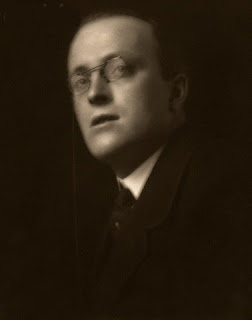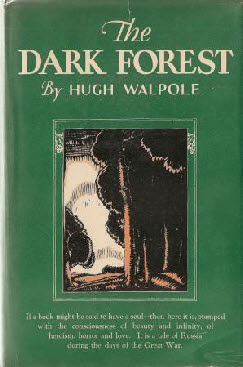Ah, the novella. The awkward cousin at the wedding reception who, in his suit-straining obesity, grazes at the buffet table while eyeing the slim, sharp young things having a good time out on the dance floor. Someone should tell that fat cousin he's still loved, even though he has crumbs on his necktie and no one ever asks him to dance.
The novella is fiction at that awkward stage: Too plump in plot and character to be called a short story, but often too thin to warrant its own publication as a stand-alone book. It is both "more than" and "not quite."
But what sets the novella apart from its thinner cousins, the short story and the anorexic short-short? And what about those other fellows, big and solid as linebackers queueing up for dollar dances with the bride--the ones who call themselves novels? Does the novella dream of someday bulking up to their heft?
Someone please take pity on the novella. He needs a lot of love to remind him that, yes indeed, he is a valuable member of the family.
And that's precisely what Dan Wickett and the good folks over at The Emerging Writers Network are doing by celebrating June as Novella Month. Wickett writes, "I've always been fascinated at the range of different ideas behind exactly what makes a novella a novella." All this month, EWN is posting capsule reviews of contemporary novellas and asking guests to offer up their interpretation of "what makes a novella a novella." Coming fresh off the maypole dance of Short Story Month, June seems the perfect time to sit back in the hammock with a glass of lemonade (or gin-and-tonic if you're reading John Cheever's Oh What a Paradise It Seems
The novella lives an ill-defined existence. The Merriam-Webster Dictionary defines it as "a story with a compact and pointed plot" and "a work of fiction intermediate in length and complexity between a short story and a novel." Novellas usually range in length from 20,000 to 40,000 words. The Science Fiction and Fantasy Writers of America Nebula Awards for science fiction even more precisely defines the novella as having a word count between 17,500 and 40,000 (what's up with that odd 17,500, guys?).
Setting aside word counts for a moment, we still find plenty of debate about the social status of novellas. In his Afterword to Different Seasons
King, of course, knows a thing or three about novellas; a good majority of his "short stories" are really those fat cousins in disguise. In fact, I think the first time I ever heard the term "novella" was when I picked up a copy of Different Seasons in 1982. That particular quartet of "longish stories" has produced two great movies (The Shawshank Redemption from "Rita Hayworth and Shawshank Redemption" and Stand By Me from "The Body") and one really mediocre movie (Apt Pupil from the story by the same name). The fourth novella from that collection, "The Breathing Method," is perhaps unfilmable thanks to its horrific cover-your-eyes scenes of childbirth.
King's latest "book," Blockade Billy
The point here is, even publishers are at a loss to properly catalogue and classify the novella. Is it just a question of length and lack of chapters? Is it structure as much as it is content? Defining "novella" forces us to examine the short story even more intently for how it executes its blade-sharp, blink-quick effect.
On the eve of publication of his much-lauded collection of novellas, The New Valley
Just as the brevity of the short form lends itself to particular purposes and demands particular strengths, just as the expansiveness of a novel allows for different approaches to story and unique potentials for what it can accomplish, a novella is shaped by the restrictions of its length, but it should be defined by what those restrictions allow it to do. It is a different animal altogether: Though worded as concisely as a short story, it has room for scenes to breathe. Moments can linger. The fist that squeezes the world of a short story into a few compact scenes can be unclenched a little--bits of backstory let in, descriptions filled out, characters lived with longer. But the novella embraces not too many characters, and not too wide-ranging a plot, not too vast a scope--those are the realm of the novel. A novella compresses the world with a short story's focus, but it explores that smaller space with a novel's generosity.
Still unsure as to what, exactly, constitutes a novella? Take heart, dear reader--you are not alone. For most of us, it's sort of like the classic definition of pornography: you know it when you see it. At John Madera's hitherandthitheringwaters website, he offers up an incisive look at the novella's origins, sorts through the many definitions of the form and--frosting on the cake--provides links to dozens of "my favorite novella" lists by writers he polled. Their answers won't help resolve the muddle of definition--one man's long short story is another woman's novella is another person's short novel. But, at the very least, you can compile a pretty extensive reading list from all their suggestions.
Here are some literary works which most folks agree can be called novellas (though I'll admit I've always considered some of these to be novels):
The Dead
The Turn of the Screw
The Metamorphosis
The Hound of the Baskervilles
The Man Who Would Be King
Bartleby the Scrivener
Heart of Darkness
A Christmas Carol
The Bear
Legends of the Fall
Miss Lonleyhearts
The Snow Goose
As for me, I'm going to do my part to further EWN's cause by committing to reading at least one novella during the month of June. Better yet, I'll read three--the trio of novellas in Josh Weil's The New Valley
And what about you, dear reader? Do you have a list of favorite novellas? Feel free to share with the rest of us in the comments section.























